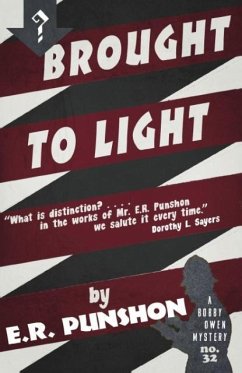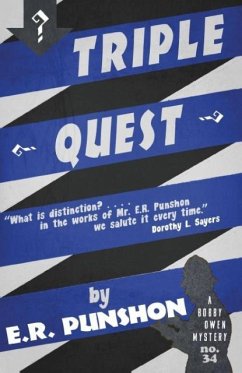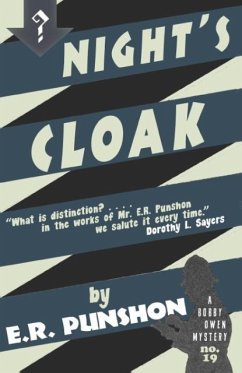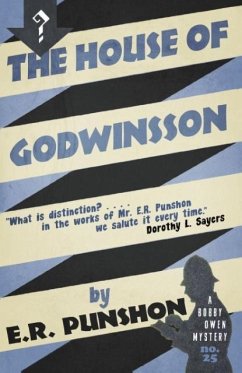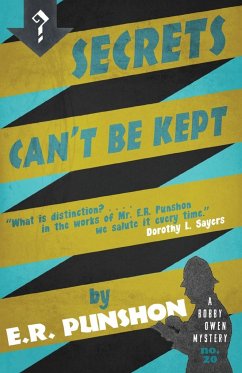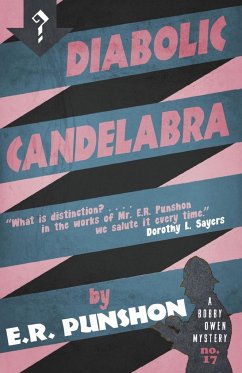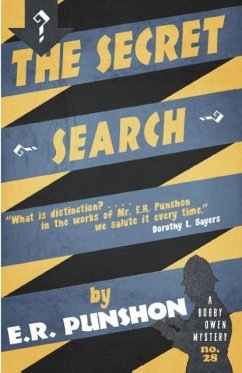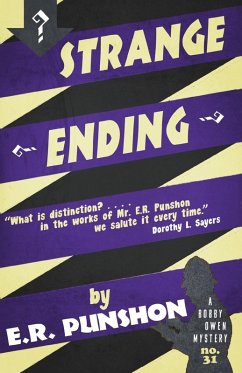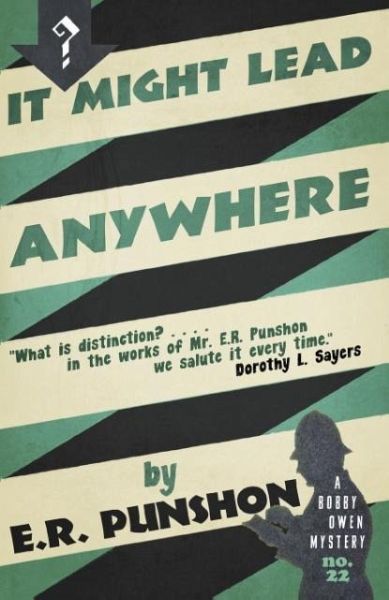
It Might Lead Anywhere
A Bobby Owen Mystery
Versandkostenfrei!
Versandfertig in 1-2 Wochen
14,99 €
inkl. MwSt.

PAYBACK Punkte
7 °P sammeln!
"Give me gossip or Sherlock Holmes, and I take gossip every time. The detective’s first aid and ever present help in time of doubt." Why should anyone want to murder a man like Alfred Brown? Yet slain he was, in his own home and with a poker. The murder seems to be connected to a bout of religious fervour gripping the village of Oldfordham – in particular a battle royal between the Reverend Alexander Childs, and his nemesis Duke Dell, boxer turned revivalist preacher. But Deputy Chief Constable Bobby Owen has numerous other local suspects, and local gossips, to contend with in a puzzler of...
"Give me gossip or Sherlock Holmes, and I take gossip every time. The detective’s first aid and ever present help in time of doubt." Why should anyone want to murder a man like Alfred Brown? Yet slain he was, in his own home and with a poker. The murder seems to be connected to a bout of religious fervour gripping the village of Oldfordham – in particular a battle royal between the Reverend Alexander Childs, and his nemesis Duke Dell, boxer turned revivalist preacher. But Deputy Chief Constable Bobby Owen has numerous other local suspects, and local gossips, to contend with in a puzzler of a case that indeed might lead anywhere. It Might Lead Anywhere was first published in 1946, the twenty-second of the Bobby Owen mysteries, a series eventually including thirty-five novels. This edition features a new introduction by crime fiction historian Curtis Evans. "What is distinction? … in the works of Mr. E.R. Punshon we salute it every time." Dorothy L. Sayers



